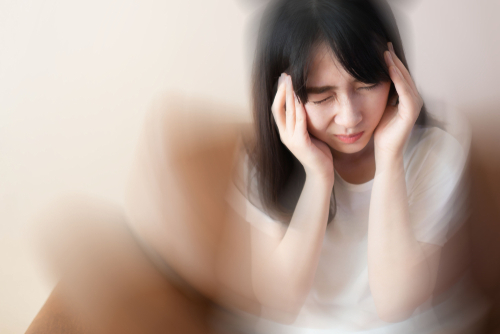Meniere’s disease
Meniere’s disease is a painful condition of the inner ear. The inner ear is responsible for helping us keep our equilibrium, and once it becomes endangered, Meniere’s is the final result. Meniere’s disease is well known to get loss of equilibrium, hearing loss, and tinnitus (ringing in the ears). Meniere’s affects everybody at several levels. It’s irregular and can be extremely unpredictable. Some can deal well with it as it’s nothing but a mild annoyance, but some find it to be quite disabling and may lead to deafness and permanent imbalance of their internal ear.
Typical Symptoms of Meniere’s Disease
A classic instance of Meniere’s disease contains four big elements:
Hearing reduction
This normally begins in 1 ear and might progress to another one finally. It might change based on the intensity of the assault. Nobody’s situation is just like the next.
Rotational vertigo
This is the feeling of rotation. You will feel as if the things around you’re spinning. It may come on somewhat or strike suddenly and be quite intense. The ideal thing to do if this happens is to sit right where you are till the feeling passes because a lot of men and women get injuries should they dropdown.
Stress
The sensation of congestion, swelling, or the ear is under stress is shared with Meniere’s disease.
Tinnitus
A ringing sensation in the ears which ranges from moderate to excruciating.
Does Meniere’s Disease Happen? The precise cause of Meniere’s disease remains a mystery among the health care community. Some theories suggest it is a result of a build-up of fluid from the inner ear.
Some variables that could make this happen are:
- Abnormal immune system reaction
- Viral infection
- Migraines
- Genetic predisposition
- Improper fluid drainage
- Allergies
- Head or neck injury
Due to the nature of the problem, a combination of factors might be included. We will concentrate on the final item in the preceding listing later in this report.
A definite connection was found involving head and neck injury and Meniere’s disease.
7 Strategies to Help Alleviate Symptoms of Meniere’s Disease
Here are 7 items you can try in your home to help alleviate your symptoms of Meniere’s disorder:
Drink a lot of water
This may seem counterproductive since Meniere’s may be brought on by an extra build-up of fluid, but another motive for Meniere’s could be a virus, pathogen, or germs in your body. Drinking water can help flush out this. By maintaining the water inside your body, you’ll be prosperous in eliminating excess salts and draining toxins out.
Follow a low sodium diet
Physicians will suggest this rather often because the excess salt in the body can lead to redness and water retention. It is possible to remove these problems by lowering your salt consumption.
Maintain your carbohydrates and proteins
Carbohydrates break down to simple sugars and boost the insulin into your blood due to sugar. If you eat protein, it generates a discharge of glucagon to modulate the quantity of insulin within the body. This could help keep your blood glucose and insulin in management and help decrease the symptoms of Meniere’s. Stay away from sugar replacements and MSG: Aspartame and MSG are closely connected to Meniere’s.
These unhealthy goods are observed in the vast majority of processed foods. But you can avoid them using just a small hard work and, hopefully, see an improvement in symptoms. Manage your anxiety levels: Stress releases the pressure hormones and may cause Meniere’s disease. Getting skilled assistance to manage chronic stress might be a fantastic choice to take into account.
Practice pressure relief at home
Listening to soothing music, performing some strengthening exercises, like Pilates, or even taking a very long walk.
Avoid nicotine and caffeine: both these substances are regarded as stimulating. It’s been discovered that both nicotine and caffeine extend the length of hearing loss, create vertigo worse, and also create the ringing of tinnitus much louder. Attempt to prevent both these substances completely if at all possible. Avoid foods that cause inflammation: These contain foods that are tough to digest, since they may lead to irritation throughout the entire body.
Mild foods would be the ideal alternative with Meniere’s.
Finding Natural Relief to Meniere’s Disease research between 139 Meniere’s sufferers revealed some fascinating information that’s beneficial to anybody afflicted by it. The majority of the participants may remember having some kind of neck or head injury ahead of the beginning of the symptoms of Meniere’s disease. It was discovered upon an examination which 139 needed a misaligned bone within their upper cervical spine. When awarded a correction with an upper cervical artery, all reported visiting with their symptoms improved. Specifically, they detected a rise in their vertigo.
The majority even watched their Meniere’s move away.
It has to do with the C1 vertebra and just how tightly it sits at the neck into the brainstem and Eustachian tube. If the C1 goes from the place, the misalignment might create the brainstem to malfunction and start sending improper signs to the brain about the body’s place, resulting in vertigo. Additionally, it may result in problems with the Eustachian tube.

